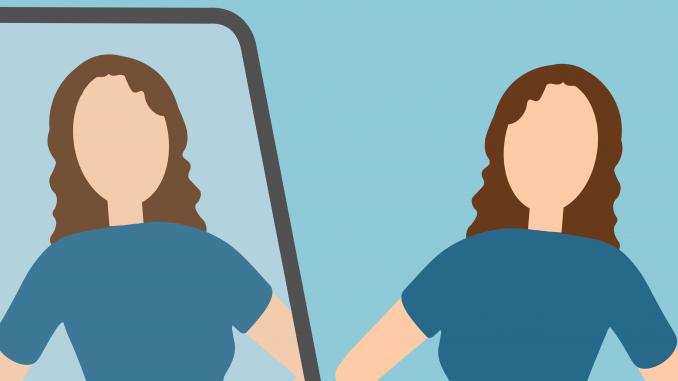
Growing up, I didn’t particularly like my appearance. If I wasn’t upset with my body, then it was my hair, skin or face I found fault with, and so on and so forth in a never-ending cycle of self-judgement.
Thinking back to my adolescence, I remember looking at others with envy, wishing I could somehow trade my body for theirs.
When I was 17, I was diagnosed with polycystic ovary syndrome, a hormonal disorder common among individuals with female reproductive systems of childbearing age. Symptoms include irregular menstrual cycles, weight gain, acne, excessive body hair growth and difficulty conceiving.
Birth control is one of the only forms of treatment for it, so I was immediately given a prescription. The pills helped regulate my hormones and alleviate some of my symptoms, but it was a far cry from a cure. PCOS cannot be cured and can only be managed.
As a result of the disorder, I struggled with my weight. I convinced myself being overweight was indicative of some deeper character flaw, like being lazy or having no self-control. I thought I would never be considered beautiful by anyone if I couldn’t squeeze myself into a slim mold.
Then came the popularization of the body positivity movement on the Internet. Beautiful influencers on social media began telling me I had no reason to dislike myself because of my size.
They assured me that I was unconditionally and irrevocably beautiful, no matter what I looked like.
But I certainly didn’t feel beautiful. The less my body resembled our culture’s beauty ideals, the less feminine I felt. Unable to identify with or even visualize my femininity outside of society’s beauty standards, I deemed myself as permanently undesirable.
While the body positivity movement has helped others, the relentless positivity on Instagram made me feel ashamed. Not only did I dislike my appearance, but I was unhappy because I couldn’t accept myself as I was.
Body positivity was somewhat useful in encouraging me to love myself and normalizing my body as imperfect, but it ultimately failed to raise the question of why I needed to be validated in the first place.
This is fundamentally the problem I have with the body positivity movement. Rather than eliminating my longing to be perceived as beautiful, the movement fulfills this desire by insisting I am beautiful regardless of my physical appearance.
Like my body, the movement is flawed. While I shouldn’t feel guilty for factors out of my control, I also shouldn’t need to prove I am beautiful for anyone other than myself.
Likewise, there is nothing wrong with wanting to change something about myself, particularly if it will ameliorate my health.
Self-love and self-betterment can coexist.
I’ve found the simplest way to embrace this duality is by practicing body neutrality as opposed to body positivity. Rather than judging myself as either beautiful or ugly, I try to remove the expectation of beauty entirely. I don’t want to be so concerned with the burden of my perception when my body is capable of so much more.
I no longer go on every new fad diet I find. Instead, I eat nutritious foods that keep my body energized. At times, I am haunted by my teenage insecurities, but it’s liberating to think of my body in terms of what it can do rather than how it looks.
Self-acceptance is a long journey, but it is one I am embracing wholeheartedly. I am grateful for all that my body can do, and as long as I am healthy, I am happy.



If a woman feels she’ll never be desirable because of her weight, we cannot blame social media or Instagram or movie stars on this. This has roots in the parent-child dynamics. Before you blame Instagram or the media, look at your parents and the things they said to you when growing up. My niece is a bp influencer yet has a conventionally attractive body. But she’s really, really messed up and has long thought that the only way people could like her is if she had skinny thighs. She has the body all those sad women would KILL for. Yet here she is whining, though making money off of her Instagram and TikTok. Her mental issues are rooted in father-daughter dynamics. I know so because her dad is my brother and I know exactly what he’s like.